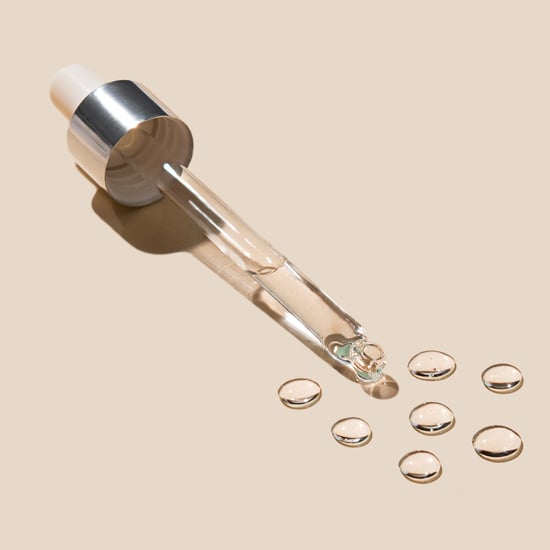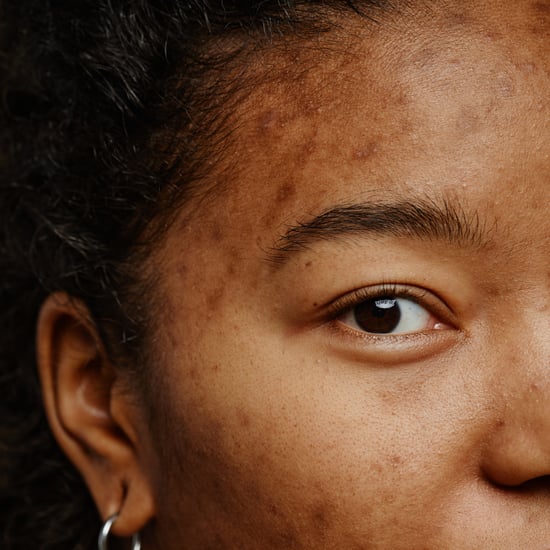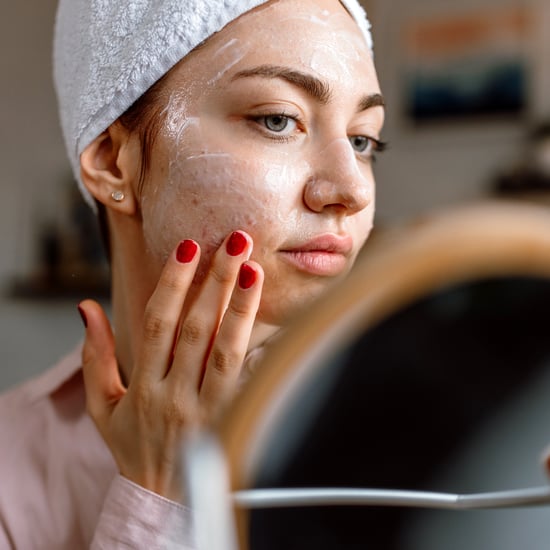Benzoyl Peroxide Is Now Available Without Prescription in UK
You Can Now Buy Benzoyl Peroxide Off the Shelf at Superdrug — Here's What a Doctor Has to Say About It
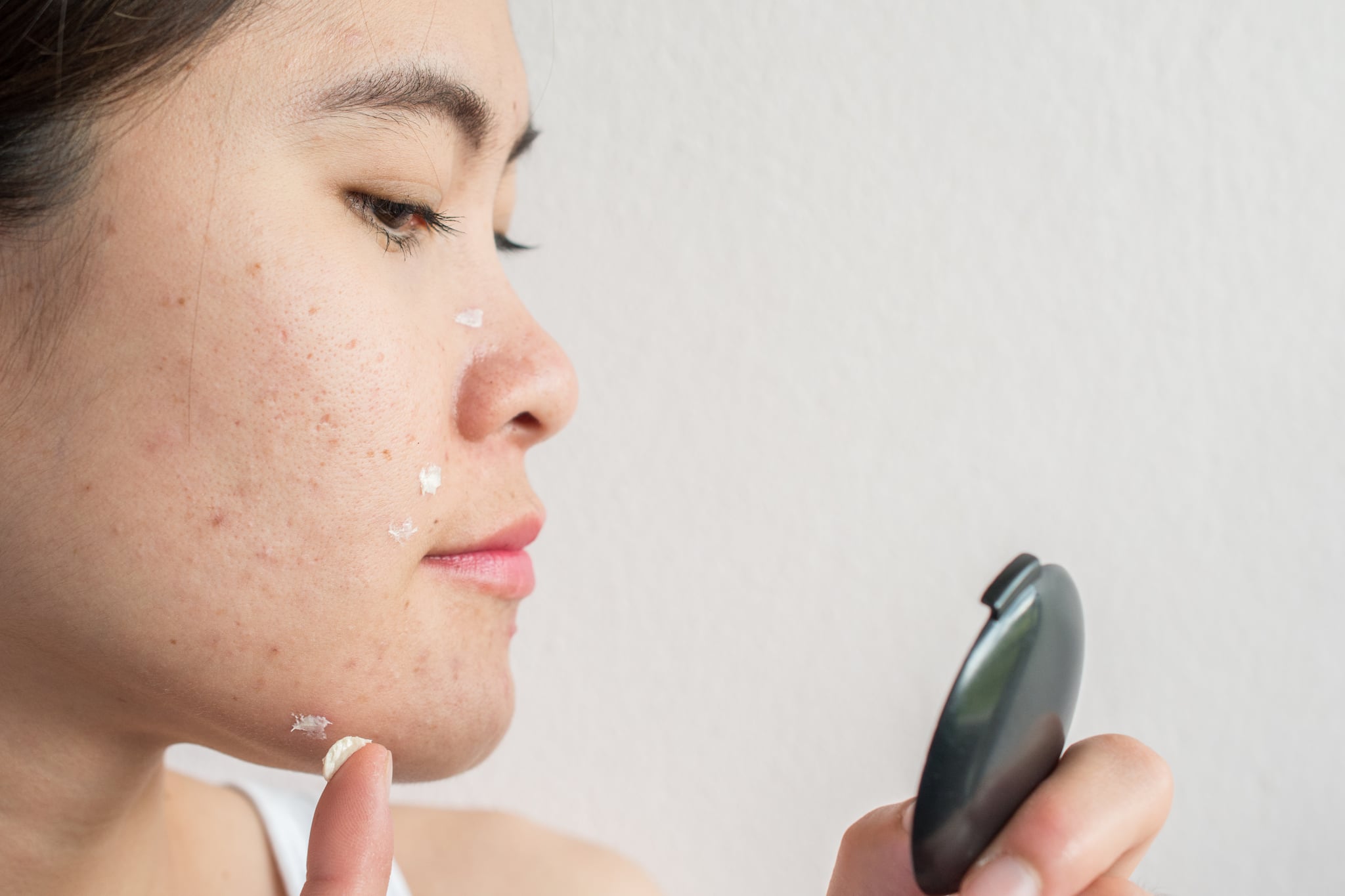
Many people with acne have tried various acids, ointments, and creams with the aim of treating their breakouts, but oftentimes, professional help is required, especially if you're looking to get your hands on professional-strength products. While we always advise that people seek professional help from a GP, or even better, a dermatologist or skin expert, we understand that appointments can be hard to come by, especially during COVID-19. To be honest, getting acne products over the counter (OTC) or via prescription can just be a downright faff at times.
Now, you can get a popular acne treatment, benzoyl peroxide, without the green light from a trained expert. Benzoyl peroxide is an acne-fighting ingredient that works as an antiseptic, aiming to reduce the amount of bacteria on the skin's surface, which causes acne. Typically, you need the help of a GP or pharmacist to get your hands on benzoyl peroxide, but fairly recently, health-and-beauty retailer Superdrug made it available on the shelves.
Benzoyl peroxide often comes in a wash (Acnecide Face Wash w/w 5%) or gel formula (Acnecide 5% w/w Gel), which pharmacists warn shouldn't be used together or used in conjunction with other acne medicine such as isotretinoin (also known as Roaccutane). It's recommended that you slowly start to build up the skin's tolerance of the product (beginning with two times a week and gradually increasing) to ensure you don't overirritate or dry out the skin. It's imperative to wear sunscreen while using the treatment (and honestly, you should be wearing it daily — yes, even when it's cloudy, and even if you aren't using benzoyl peroxide) as you'll be more prone to sun damage. Like many skin-care products, it will take a number of weeks to begin to work. Experts typically recommend using benzoyl peroxide for one to three months before you start seeing results. If your acne worsens or doesn't improve over a few months, then you may want to seek professional help.
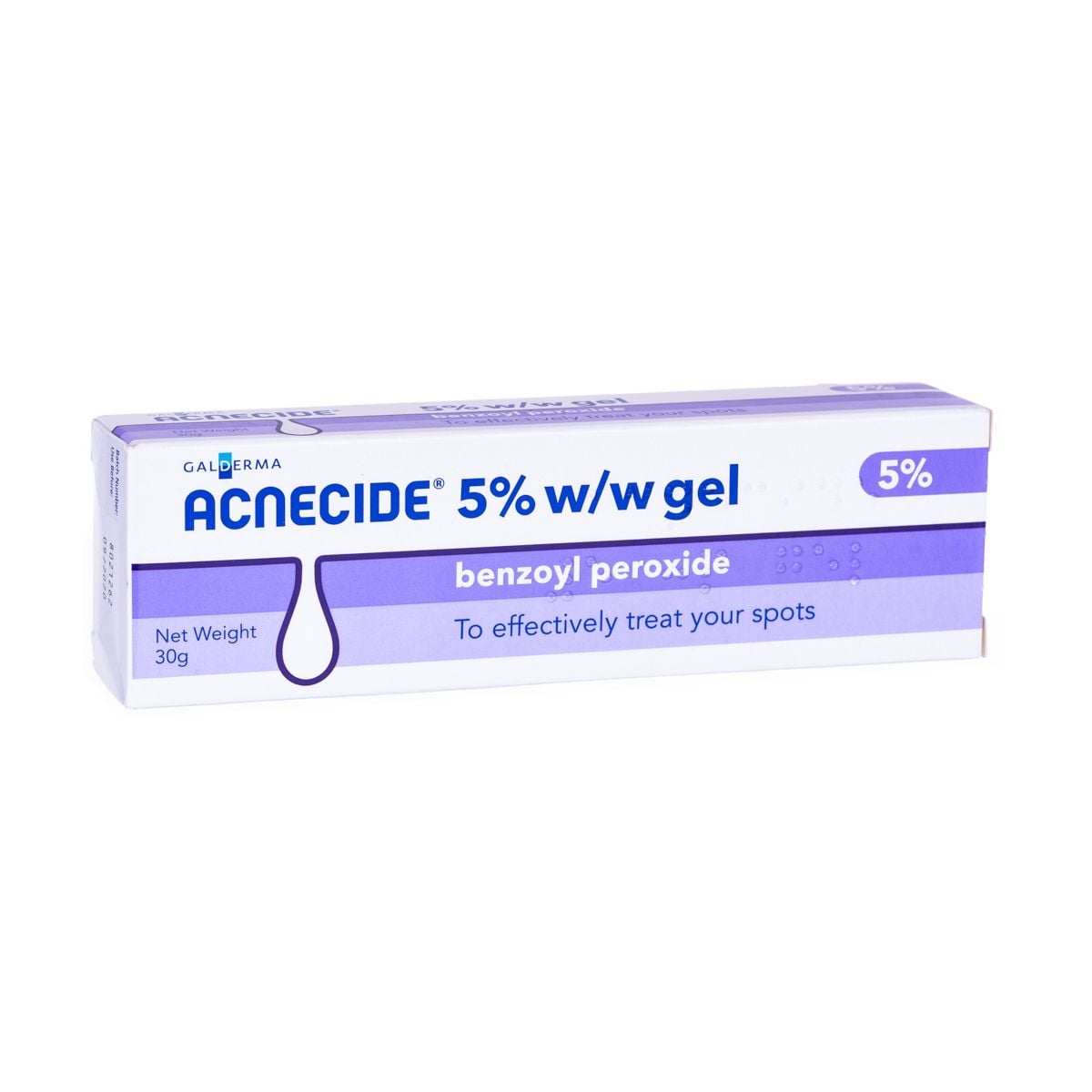
So, why the change in rules? In October 2019, Acnecide 5% w/w Gel and Acnecide Face Wash w/w 5%, which contain benzoyl peroxide, were formally reclassified from the pharmacy to general sale list. This means that originally, the products had to be sold under the direction of a pharmacist, whereas now, they're available on the shelves. The pharmaceutical manufacturer, Galderma, licensed lower-strength products to be sold on shelves to treat mild acne, however, high-strength products for more severe acne remain under a pharmacy license. The decision to reclassify some of the products was made by the Medicines and Healthcare Products Regulatory Agency (MHRA) so that they were more readily available and accessible, with the aim to make it easier for people to treat mild acne should they wish.
To get a doctor's perspective, we spoke with Dr Sophie Shotter, cosmetic doctor and founder of Illuminate Skin Clinic in Kent, to get the lowdown on how shelf-bought benzoyl peroxide differs from prescription strength, plus what you should be mindful of before slathering the treatment on your skin.
"I do think it's a good thing that benzoyl peroxide is being made available in more accessible formulations, but one thing to bear in mind is that not all formulations will be created equal," Dr Shotter told POPSUGAR. "Benzoyl peroxide is available as a prescription, OTC, or off-the-shelf formulation and will vary in different ways, including strength and also delivery mechanism. This will drive depth of penetration of the ingredients."
Although these products are great for those with breakout-prone skin, it's important not to self-diagnose acne. Dr Shotter warned that many people reach for products that are tailored for acne-prone skin when, in fact, they're suffering from rosacea or perioral dermatitis instead, both of which are on the sensitive end of the spectrum and require more gentle skin products rather than aggressive management using products. Because of this, benzoyl peroxide should be used with caution. If you aren't sure whether benzoyl peroxide is suitable for your skin type, it's always best to seek expert advice first to avoid causing further skin damage or irritation further down the line.
In short: "I think for patients prone to mild breakouts or the occasional spot, this could be great, but it's always going to be an ingredient to use with caution, in my opinion," Dr Shotter said.
